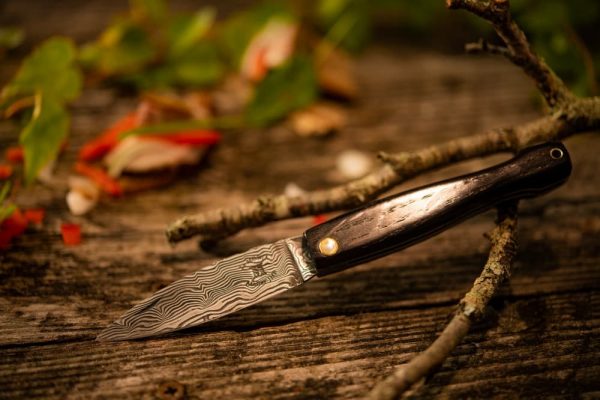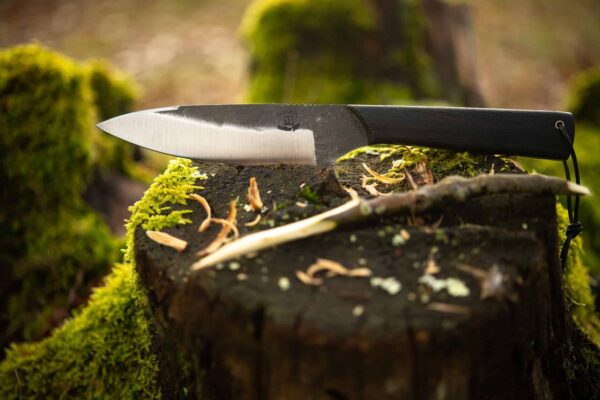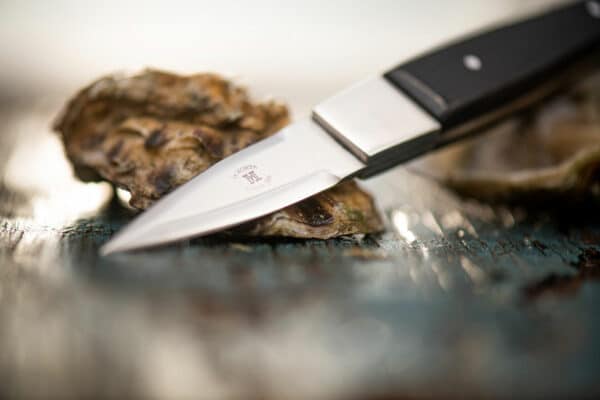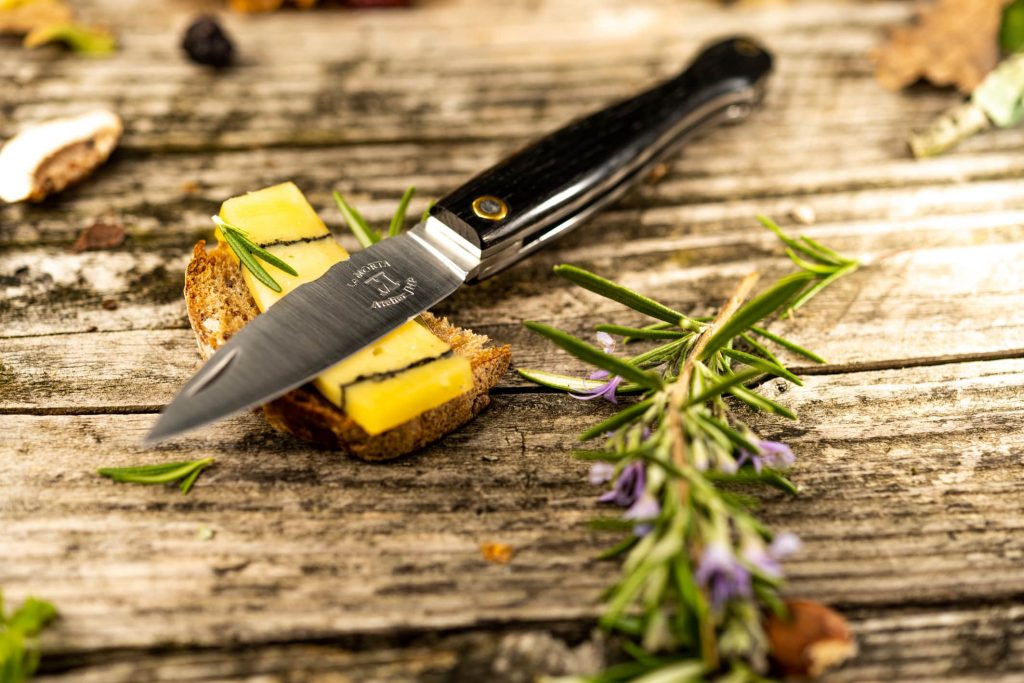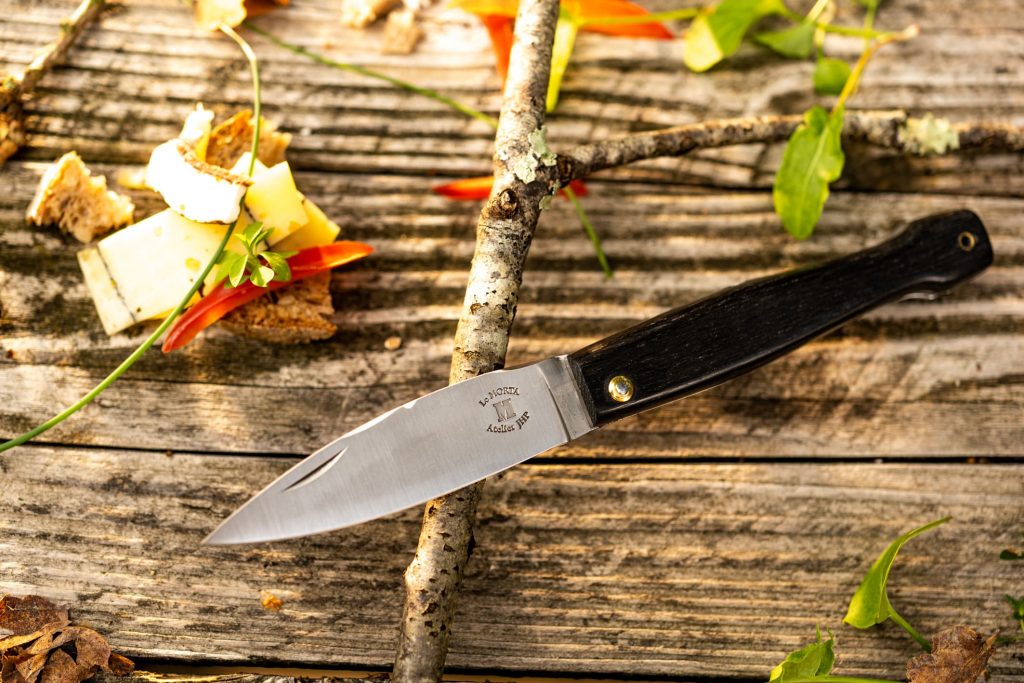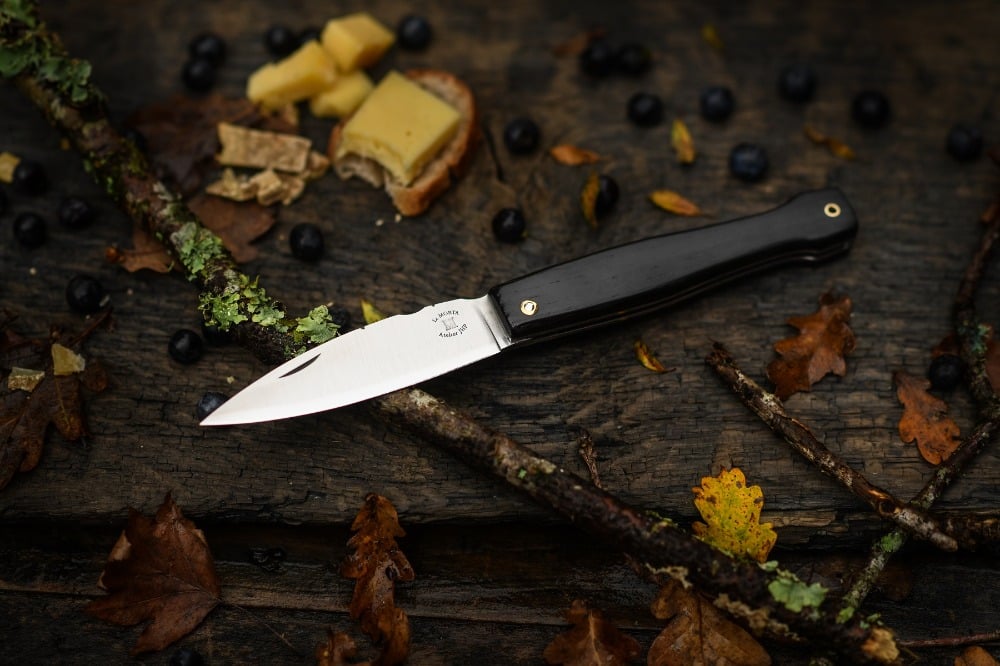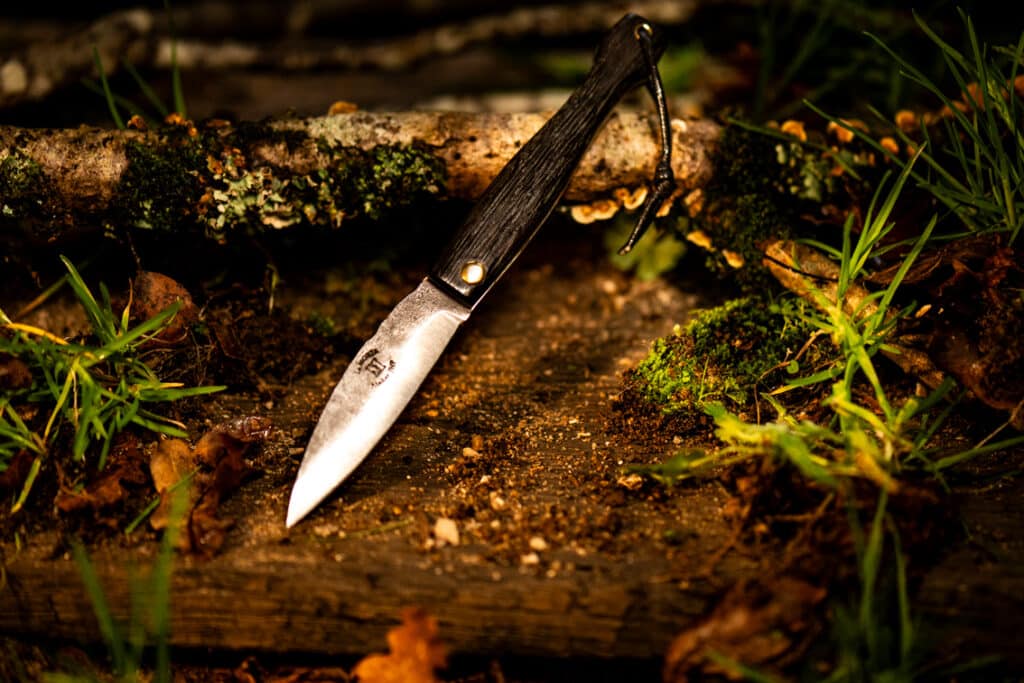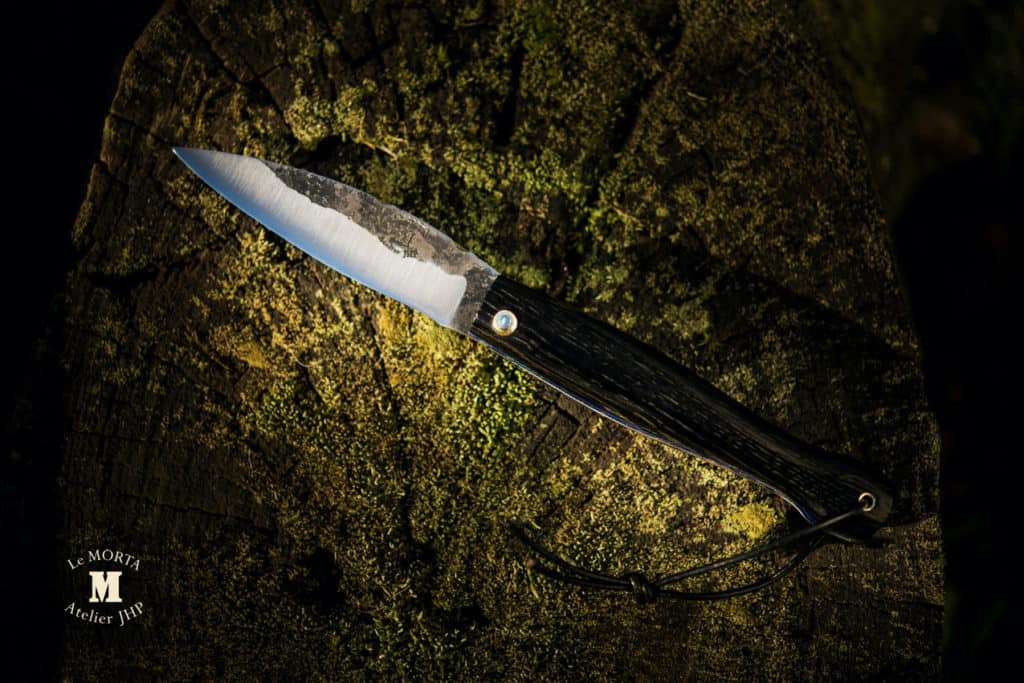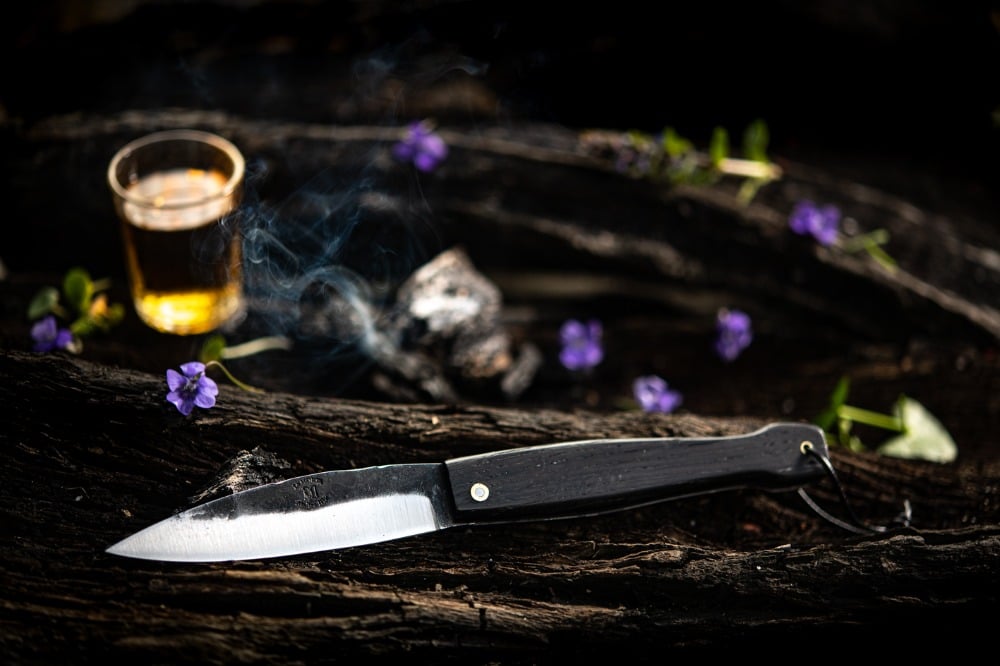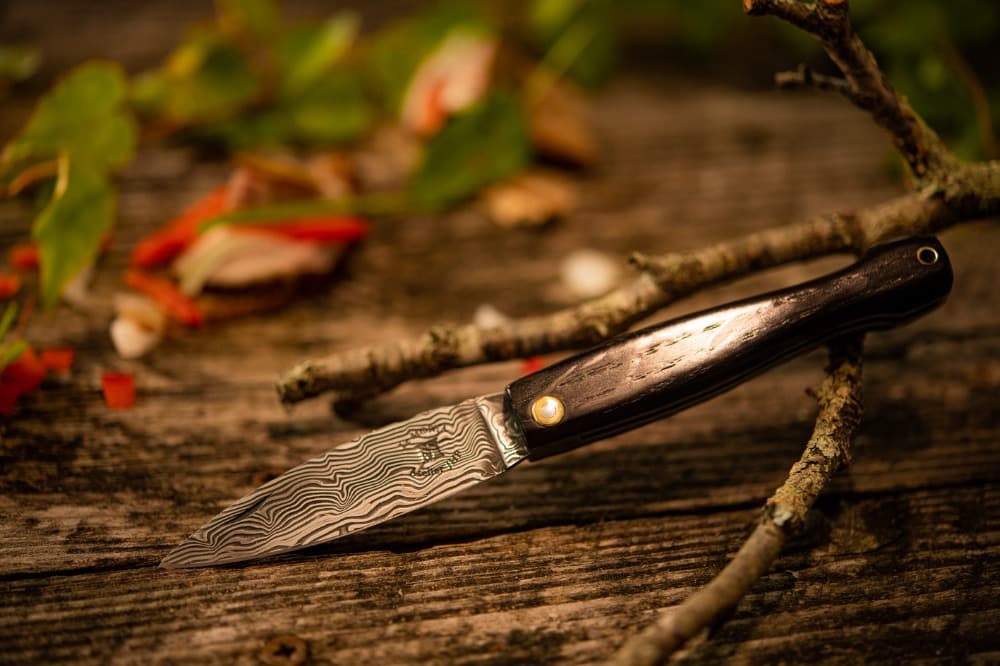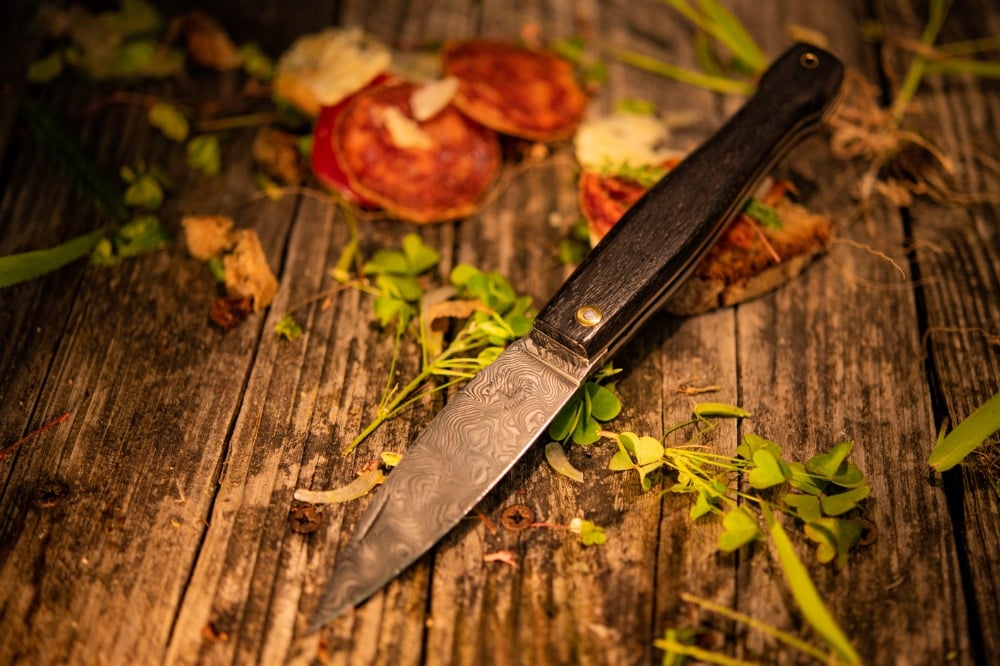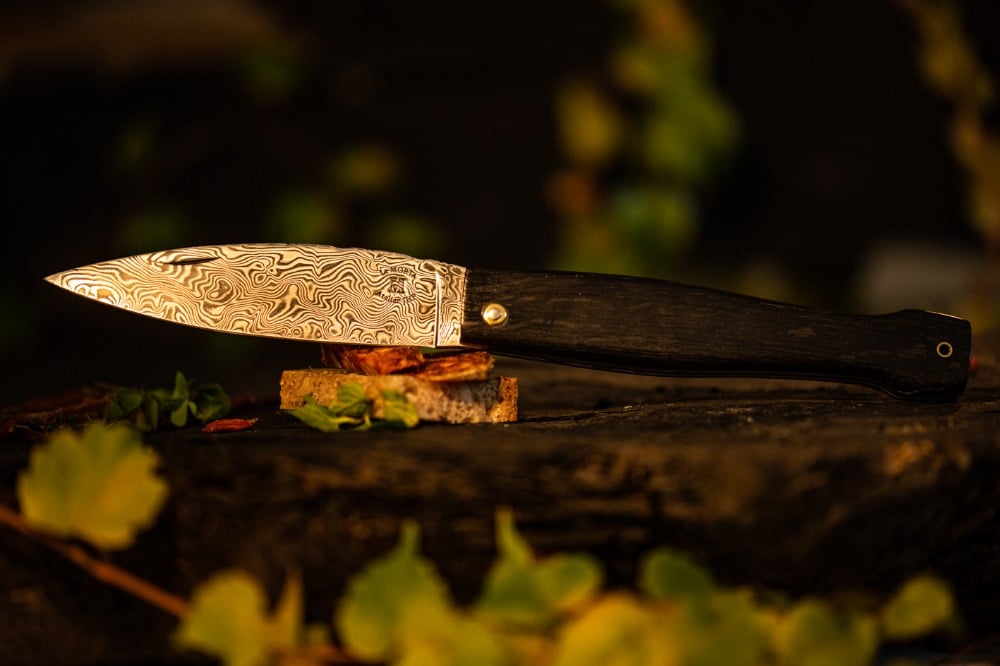Do I have the right to carry a knife on me? Ah! The eternal question. Rumours abound, but there’s still no point placing the blade in the hollow of you palm, it’s just a myth. Walking around with a so-called cold weapon (which includes a knife) is prohibited in France. But as any self-respecting French person knows, lawmakers nonetheless allow you to have a knife on your person. Yes, circumstances and the intended use allow you to keep your blade in a pocket. Laws, case law and actual facts: follow the meanders of the law to finally understand when and how French law governs the act of carrying a knife.
What the law says about the right to carry a knife in France
Purchasing, carrying and transporting: 3 distinct legal notions
The law distinguishes between purchasing a knife (and any cold weapon in general), carrying it on your person, and transporting it.
- Purchasing corresponds to the acquisition as part of a transaction. There is nothing very innovative in that.
- Carrying a knife is the act of having it on your person available for immediate use.
- Transporting for its part consists in moving the knife while it is close to you but unavailable for immediate use.
Making this distinction helps us understand that everything is based on the real intention of the person walking around with a knife in their pocket.
What are the different types of knives and their uses?
Folding knives and Swiss army knives
A folding knife, as the name suggests, is a knife with a blade that can be folded into the handle. Classic Swiss army knives are a popular type of folding knife, known for their versatility and multi-functional tools. Carrying pocket knives like these is common for everyday use, as they can come in handy for a variety of tasks.
Fixed blade knives
Fixed blade knives, on the other hand, have a blade that is permanently attached to the handle. These knives can be used for more heavy-duty tasks and are often carried with a sheath for protection. When choosing a fixed blade knife, it is important to consider the blade length and locking system, as these factors can affect the knife’s legality in certain countries.
French knife laws
French knife laws are strict when it comes to carrying knives. Certain types of knives, such as those with a locking blade or a blade length exceeding a reasonable size, are considered illegal to carry without a valid reason. French law also prohibits the use of knives for self-defence purposes. However, there are exceptions for carrying such knives for work purposes, hunting, or other legitimate activities.
Am I allowed to carry a knife? The acts of law
Is the knife a weapon?
Article 132-75 of the Criminal Code in effect since 10 March 2004 stipulates that « any object designed to kill or injure is a weapon.
Any other object liable to represent a danger to people is deemed a weapon whenever it is used to kill, injure or threaten, or when the bearer’s intent is to use it to kill, injure or threaten.
Any object is deemed a weapon if it resembles the weapon defined in the first subsection, such as to create confusion, if it is used to threaten to kill or injure, or if the bearer intends to use it to threaten to kill or injure.Using an animal to kill, injure or threaten is construed as using a weapon. »
🔪 So the knife is effectively a weapon, legally speaking
At this stage, the law makes no distinction between folding knives, butterfly knives, fixed blade knives or pocket knives.
A class D weapon
The D category refers specifically to weapons that can be freely purchased and owned. It notably includes « switchblades, daggers, truncheons, non-fire arms, etc ». Only an adult can buy one.
🔪 The knife is a class D weapon.
Please note: the 6th category classification dates from before 2013 and is no longer relevant today.
It is forbidden to carry and transport a category D weapon (in a car for instance) without legitimate grounds. Article R315-1 of the Domestic Security Code is very clear on this subject.
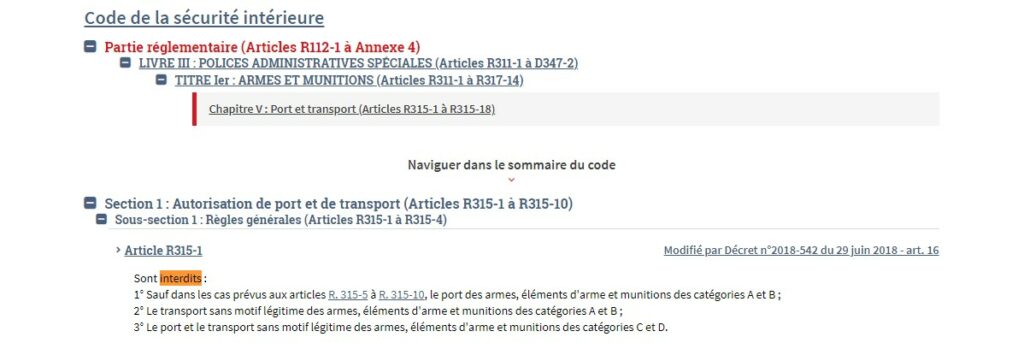
🔪 So it is officially prohibited in France to keep a knife on your person. But keep reading, because France adores adding exceptions to the rule.
Articles R315-5 to R315-10 list the special authorizations such as:
- people facing exceptional threats to their life;
- diplomatic service functions;
- diplomatic service functions;
Legal penalties
Breaking the knife laws in France or other European countries can result in severe consequences. Penalties may include fines, imprisonment of up to one year, or both, depending on the severity of the offense. Additionally, your knife may be confiscated by the police, resulting in a financial loss.
Article L317-8 of the Domestic Security Code defines the penalties. A person who keeps a knife in their pocket without legitimate grounds is punishable by :
- a €15,000 fine;
- 1 year in prison.
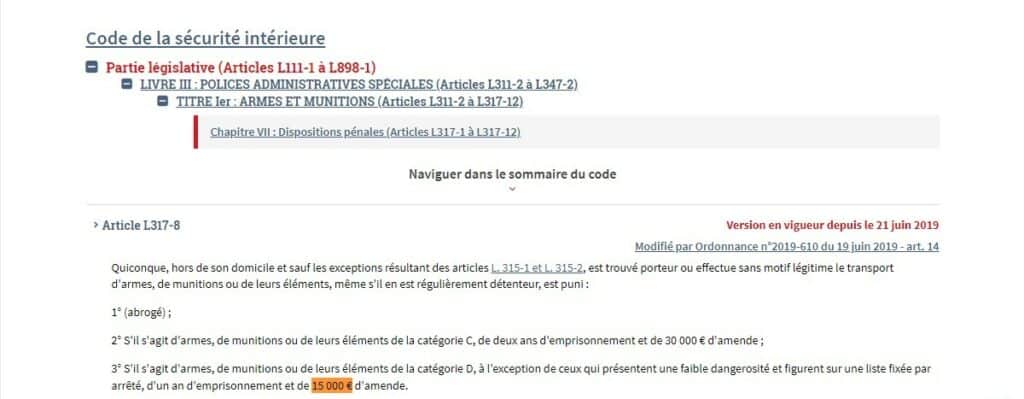
This punishment is doubled if the offence is committed by several individuals at the same time.
It is worth noting that these are national statutory provisions. Local regulations (decided by the Prefect) may ban carrying a knife or any other sharp or cutting object. Such measures primarily apply to entertainment venues, publicly-owned institutions or sports grounds.
This is what French legislation provides for. Let’s look at real life, the facts and the courts’ response.
Knife laws in other European countries
Knife laws vary across European countries, and it is essential to be aware of the regulations in the country you are visiting or residing in. Some countries may have more lenient laws, while others may have stricter regulations regarding blade length, locking systems, and reasons for carrying a knife.
French case law on the legality of carrying a knife
What the courts say
The cases judged have created case law on the issue. For instance, folding knives (pocket knives) are no longer considered cold weapons, but rather as ordinary knives used for eating. As traditional, cultural French utensils, carrying them is allowed as long as it is for normal use.
However, depending on the planned use, they can be recategorized as cold weapons by the investigating officer or the forces of law and order.
So everything rests on the notion of legitimacy.
Kitchen or pocket knives are only weapons by intended use. They are not considered aggressive as long as you don’t threaten with them.
Legitimacy: a matter of context and place
« Carrying and transporting knives are allowed as long as there is a legitimate reason to do so. The legitimacy of carrying and transporting knives presupposes that the knife in question has features rendering it appropriate for the way in which it is effectively used. »
The legitimacy is determined by the investigating officer depending on the circumstances and the context. This response was published in the Official Journal dated 26 November 2013 (page 12419).
⚖️ According to the legal dictionary the term “legitimate” means: “compliant with a higher principle deemed just in a society at a given moment in time”.
The Ministry of Justice demands that you are able to provide a legitimate reason in the event of a security check (searching a bag, car, etc.).
💡 So you understand that the situation and/or circumstances can justify carrying a knife, or not.
How can I ensure I am following the knife laws in France and other European countries?
Research and follow local regulations
Before traveling to or within Europe, it is essential to research the knife laws of the countries you plan to visit. Familiarize yourself with the restrictions and exceptions for carrying knives and ensure that your knife is of an acceptable size and type.
Do remember that laws can change, so it’s crucial to stay up-to-date with the latest regulations.
Carry your knife responsibly

When carrying a knife, make sure to have a valid reason and follow the local laws.
Keep your knife packed away in a secure location, such as a suitcase or a locked drawer, when not in use.
Avoid carrying knives in public places, such as airports, as this may lead to misunderstandings and potential legal issues.
Purchase and transport your knife carefully
When purchasing a knife, either in person or via the internet, ensure that it complies with the knife laws of your country of residence or destination.
When transporting your knife, pack it securely and out of reach, especially when traveling through airports or other locations with metal detectors.
What actually happens when you walk around carrying a knife?
The policeman’s assessment counts
So the security guard carrying out the inspection personally assesses whether or not the knife found in your pocket is dangerous. He may equate its use to breaking the law. In the event of a dispute, the judge decides.
For instance, being in possession of a pocket knife, penknife or better yet a Morta folding knife, (a french pocket knife), at a picnic among friends will be seen as legitimate. But waving them in someone’s face will transform them into cold weapons. Hence the importance of the notion of the use to which the knife is put.
This is demonstrated by the grounds of the Social Division of the Court of Appeal of Dijon dated 11/02/2016 number 14-010.15 (see appendix 1).
Conversely, having a butterfly knife, automatic cutter or military knife during a public demonstration will be less well viewed by the security guard. Any public place where violence may occur reinforces the aggressive notion of the knife. Being seen with a penknife during a fight accentuates the brutality of the situation.
As you will have understood, the security guard still has to find out that you’re carrying a knife.
Is it legal to search people in France?
There again, no but yes.
A search is prohibited in France in the absence of a crime, offence or police custody. It is governed by the Ministry of the Interior.
Policemen, security guards or agents of a licensed security company are allowed to frisk someone (pat down outer clothing for dangerous objects) during a demonstration. Apart from a sporting or cultural event, it is only allowed in the event of serious threats to public safety. The search must be done:
- by someone of the same gender;
- with the interested party’s express consent.
The right to carry a knife in France benefits from the traditional, culture nature of the pocket knife. We can intelligently conclude that it is all a matter of common sense. Having a Morta knife on you while walking through the forest will only pose a problem for nearby mushrooms.
I like living dangerously, I treat myself to a Morta knife.
Our sources:
Article R132-75 of the Criminal Code
The website Légifrance on carrying and transporting knives.
The website Légifrance on the penalties.
Service-public.fr and category D weapons
Appendix 1 (Dalloz excerpt)
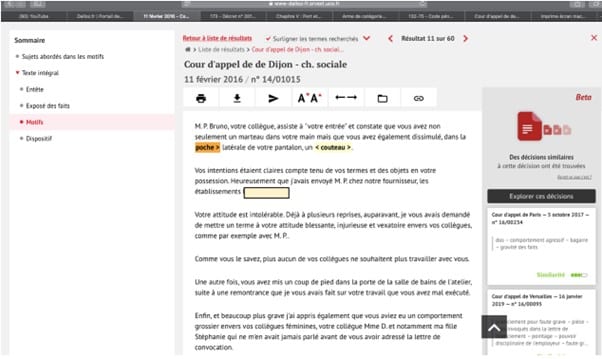
10 frequently asked questions
Am I allowed to carry a knife in France?
Yes and no. French knife laws distinguish between buying, carrying, and transporting a knife. While adults can legally purchase knives, carrying one on your person without a valid reason is prohibited.
However, there are exceptions depending on the context and intended use.
What types of knives are legal in France?
Folding knives, like Swiss Army knives, are considered everyday tools and are generally legal as long as they are used appropriately.
Fixed-blade knives, butterfly knives, daggers, and automatic knives are more strictly regulated and may be classified as Category D weapons.
What makes a knife illegal?
A knife may be illegal to carry depending on its features and the circumstances. Locking blades, automatic opening mechanisms, gravity knives, and excessively long as the blade can be restricted.
Additionally, certain illegal knife types, such as switchblades, butterfly knives, and daggers, are strictly regulated. Any knife used as a weapon or carried with malicious intent will also be considered illegal.
What are the penalties for illegally carrying a knife?
Under the French Internal Security Code, carrying a Category D weapon without a valid reason can result in a fine of up to €15,000 and up to one year in prison.
If the offense is committed as part of a group, the penalties are doubled.
What qualifies as a legitimate reason for carrying a knife in France?
A valid reason may include:
- Professional use (e.g., craftsmanship, hunting, fishing, culinary work)
- Personal use in private settings (e.g., cooking, camping, picnicking, using a kitchen knife at home or outdoors)
- Transporting a knife in a secure, sealed container
Ultimately, law enforcement officers have discretion in determining whether the reason is acceptable.
Can I transport a knife in my car or luggage?
Transporting a knife is different from carrying one on your person.
A knife stored securely in a bag and out of reach is generally tolerated. However, having a knife easily accessible in a vehicle without a clear justification could be considered illegal.
What do French courts say about carrying knives?
Case law suggests that folding knives like Swiss Army knives are generally tolerated for daily use. However, the context and intent matter. If a knife is displayed during an altercation, it is more likely to be classified as a weapon.
Do knife laws vary in other European countries?
Yes, knife regulations differ across Europe. In Germany, locking-blade knives and butterfly knives are banned.
The UK has even stricter laws, making it illegal to carry any knife in public without a valid justification, regardless of its size.
How can I avoid legal issues when carrying a knife in France?
- Research local laws before traveling.
- Never carry a knife in your pocket or in public without a legitimate reason.
- Store knives securely in a closed container.
- If questioned by authorities, calmly explain the intended use.
While French law strictly regulates knife possession, law enforcement officers have some discretion. Context and common sense play a key role in determining legality.
Can I pass a security check with a knife?
Knives are strictly prohibited in sensitive public areas such as airports, stadiums, and government buildings. If a knife is found during a security check, it may be confiscated, and the carrier could face legal consequences unless a valid reason is provided.



